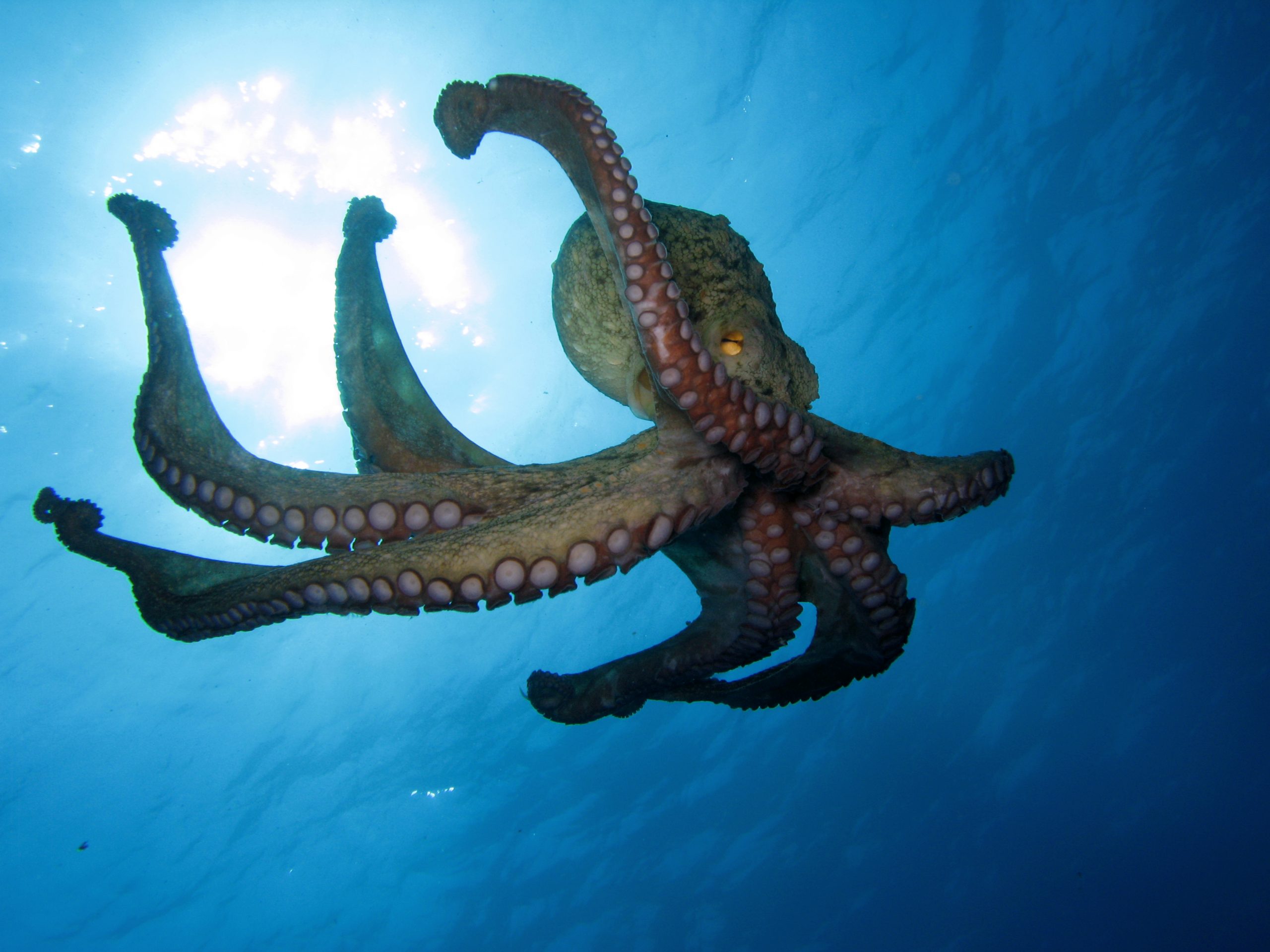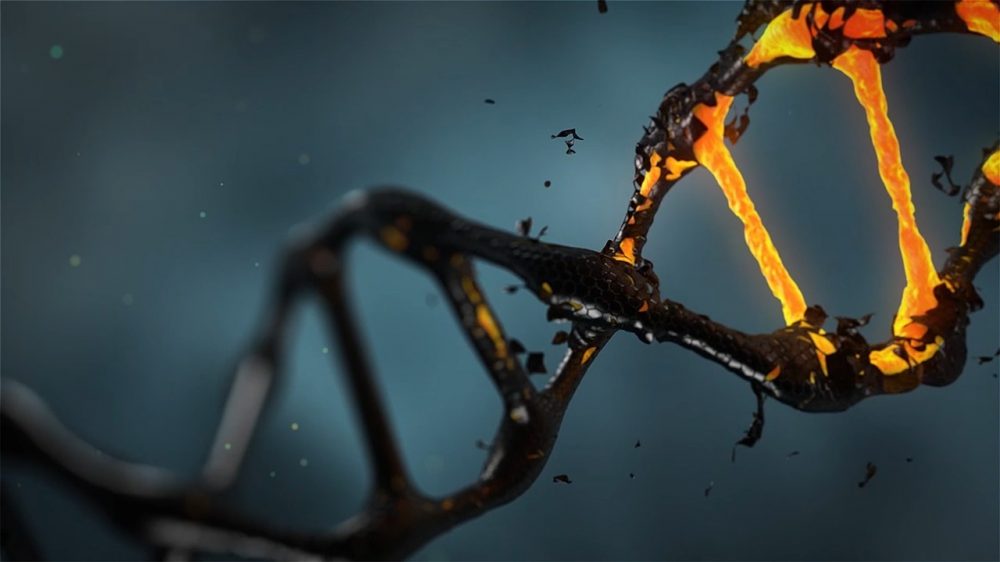Researchers have found that both the octopus brain and the human brain share the same "jumping genes."
In a recently published study, scientists say that the neural and cognitive complexity of these animals can be attributed to a molecular analog of the human brain. Researchers have found that the brain of the octopus and the brain of humans share the same “jumping gene.”
In the study, the researchers found that the same “jumping genes” were found in the brains of two species, the common octopus Octopus vulgaris, and the California octopus Octopus bimaculoides. The nervous system of the common octopus is made up of 500 million nerve cells. Around 300 million nerve cells make up the arm’s nervous system and about 200 million form the brain’s central nervous system.
According to human genome sequencing conducted in 2001, over 45% of the human genome is composed of so-called “jumping genes” that can be copied and pasted from one place to another in the genome achieving shuffles or duplications through molecular copy-and-paste mechanisms.
They are usually silent – they have no visible effects and are no longer able to move. Some of them have fallen into inactivity due to mutations accumulating over the generations; others are intact but obstructed by cellular defense mechanisms. However, even fragments of transposons and broken copies of them can be useful from an evolutionary standpoint, as raw material that evolution can use to create new products.
LINE elements (Long Interspersed Nuclear Elements) are the most relevant mobile elements within the human genome, which are found in over a hundred copies and are still potentially active. New evidence recently revealed that LINE activity is finely regulated in the brain. This is whereas it was previously thought to be just a relic of the past that was linked to evolutionary processes.

“The discovery of an element of the LINE family, active in the brain of the two octopuses species, is very significant because it adds support to the idea that these elements have a specific function that goes beyond copy-and-paste,” revealed Remo Sanges, director of the Computational Genomics Laboratory at SISSA.
There are many scientists who believe that LINE transposons coordinate neural control of learning processes. In particular, LINE transposons are highly active in the hippocampus, the brain’s most critical structure for learning and memory. As with our own, the octopus genome is densely packed with “jumping genes,” but many are inactive. The researchers now have identified a LINE family element in brain areas crucial for these animals’ cognitive function that is still capable of copying and pasting.
In examining the molecular composition of the genes responsible for the nervous system of the octopus, researchers from the International School of Advanced Studies, the Institute of Technology of Italy, and the Stazione Zoologica Anton Dohrn collaborated to make this discovery.
The researchers concluded that the similarity between man and the octopus in their cognitive abilities may be an example of convergent evolution, a process in which molecular processes evolve independently, in response to similar needs, in two genetically distant species.
Over twenty researchers from around the world collaborated on the study, published in BMC Biology.
Join the discussion and participate in awesome giveaways in our mobile Telegram group. Join Curiosmos on Telegram Today. t.me/Curiosmos





